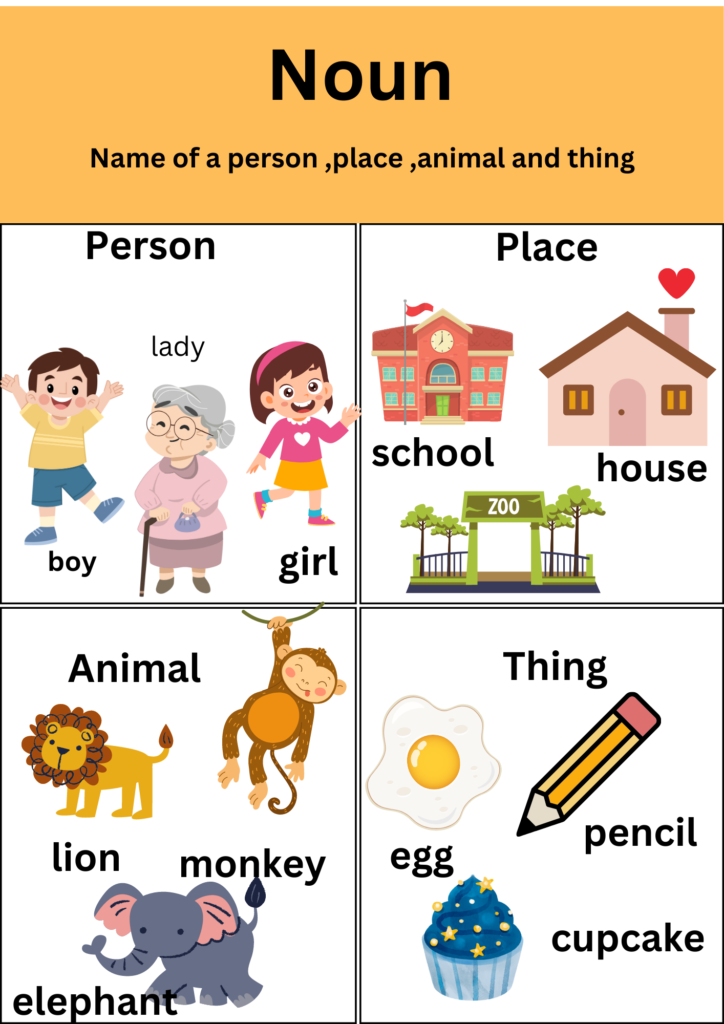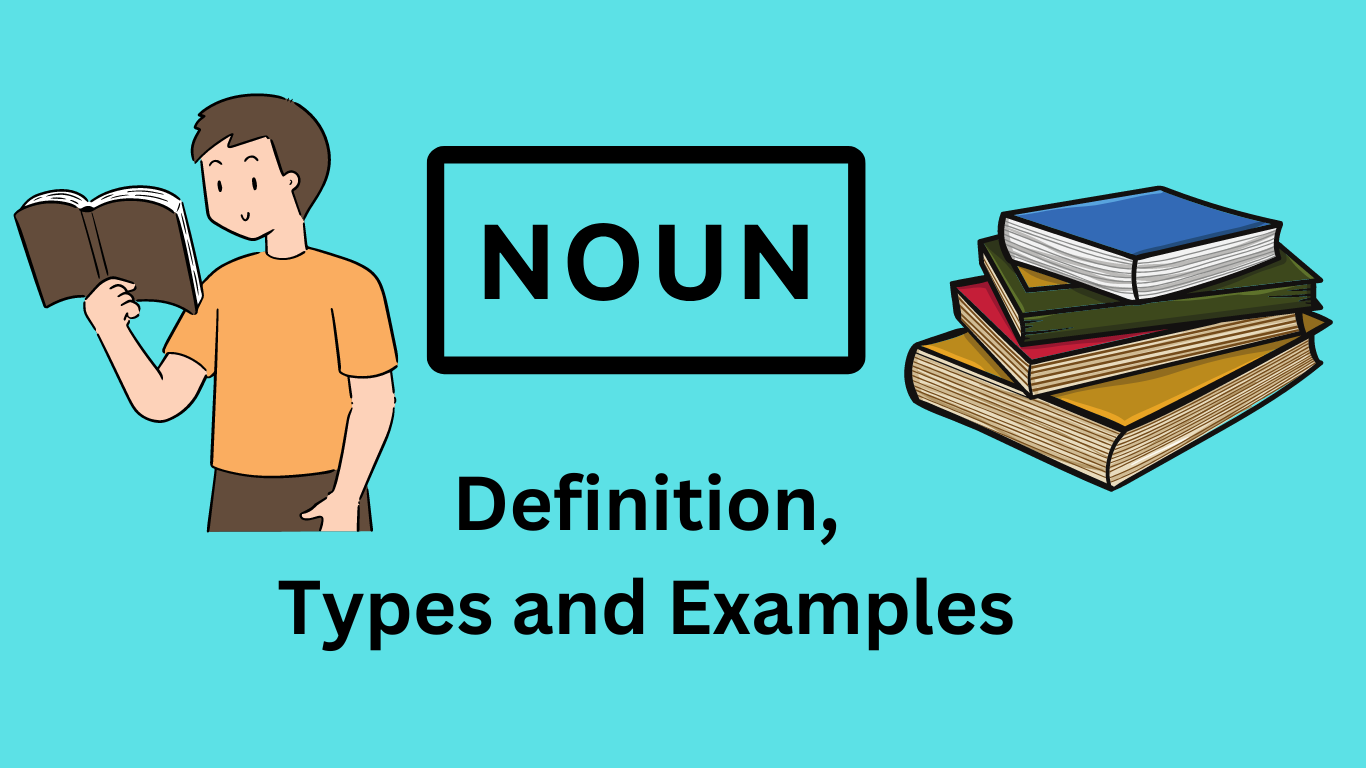Outline
- What is a Noun?
- Definition of a Noun
- Importance of Nouns in Language
- Types of Nouns
- Common Nouns
- Proper Nouns
- Concrete Nouns
- Abstract Nouns
- Collective Nouns
Countable and Uncountable Nouns- Common Nouns
- Definition and Examples
- Usage in Sentences
- Proper Nouns
- Definition and Examples
- Usage in Sentences
- Concrete Nouns
- Definition and Examples
- Usage in Sentences
- Abstract Nouns
- Definition and Examples
- Usage in Sentences
- Collective Nouns
- Definition and Examples
- Usage in Sentences
- Countable and Uncountable Nouns
- Definition and Examples
- Usage in Sentences
- How to Identify Nouns in a Sentence
- Tips and Tricks
- Practice Exercises
- Fun Activities to Learn Nouns
- Games and Puzzles
- Creative Writing Exercises
- The Role of Nouns in Communication
- How Nouns Help Us Communicate
- Importance in Reading and Writing
- Common Mistakes with Nouns
- Avoiding Common Errors
- Correcting Mistakes
- Nouns and Grammar Rules
- Subject-Verb Agreement
- Pluralization Rules
- Nouns in Different Languages
- Comparison of Nouns in English and Other Languages
- Cultural Variations
- Conclusion
- Summary of Key Points
- Encouragement to Practice
- FAQs
- What is a noun?
- Can a noun be more than one type?
- How can I help my child learn nouns?
- Are there any fun ways to practice nouns?
- Why are nouns important?
Article
What is a Noun?
Nouns are the building blocks of our sentences. But what exactly is a noun? A noun is a word that names a person, place, thing, or idea. Think of nouns as the labels we use to identify everything around us. Without nouns, we wouldn’t have a way to talk about the people we meet, the places we visit, the things we use, or the ideas we share.
Types of Nouns
Nouns come in many different types, each serving a unique purpose in our language. Let’s explore the various types of nouns and how they add richness to our conversations.
Common Nouns
Common nouns are words that name general items rather than specific ones. They are not capitalized unless they begin a sentence. Examples include “dog,” “city,” and “book.”
Usage in Sentences:
- The dog barked loudly.
- We visited a beautiful city.
- I read an interesting book.
Proper Nouns
Proper nouns name specific people, places, or things and always begin with a capital letter. Examples include “Sarah,” “London,” and “Eiffel Tower.”
Usage in Sentences:
- Sarah loves to paint.
- I traveled to London last summer.
- The Eiffel Tower is an iconic landmark.
Concrete Nouns
Concrete nouns are tangible; they can be seen, touched, heard, smelled, or tasted. Examples include “apple,” “music,” and “flower.”
Usage in Sentences:
- She ate a juicy apple.
- The music was soothing.
- A fragrant flower bloomed in the garden.
Abstract Nouns
Abstract nouns refer to ideas, qualities, or states that cannot be seen or touched. Examples include “happiness,” “freedom,” and “love.”
Usage in Sentences:
- Happiness is a choice.
- They fought for their freedom.
- Love conquers all.
Collective Nouns
Collective nouns name a group of people or things. Examples include “team,” “flock,” and “family.”
Usage in Sentences:
- The team won the championship.
- A flock of birds flew overhead.
- Our family gathers every holiday.
Countable and Uncountable Nouns
Countable nouns can be counted (e.g., “cats,” “chairs”). Uncountable nouns cannot be counted and are usually substances or abstract ideas (e.g., “water,” “advice”).
Usage in Sentences:
- There are three cats in the yard.
- She gave me good advice.
How to Identify Nouns in a Sentence
Identifying nouns in a sentence can be easy with a few tips. Look for words that name a person, place, thing, or idea. Try to spot words that answer the questions “who?” or “what?”
Practice Exercises:
- Identify the nouns in this sentence: “The children played in the park.”
- Find the nouns in this sentence: “She has a talent for music.”
Fun Activities to Learn Nouns
Learning nouns can be fun! Here are some activities to try:
Games and Puzzles:
- Create a noun scavenger hunt where kids find objects that fit different categories of nouns.
- Play a matching game where kids match pictures with the correct nouns.
Creative Writing Exercises:
- Write a short story using a list of given nouns.
- Create a comic strip with characters named by different types of nouns.
The Role of Nouns in Communication
Nouns are essential for effective communication. They help us specify who or what we are talking about, making our conversations clear and precise. Imagine trying to explain your day without using any nouns – it would be nearly impossible!
Common Mistakes with Nouns
Even though nouns are straightforward, there are common mistakes to watch out for:
Avoiding Common Errors:
- Mixing up common and proper nouns.
- Incorrectly pluralizing nouns.
Correcting Mistakes:
- Remember that proper nouns need capitalization.
- Use the correct plural form (e.g., “mice” instead of “mouses”).
Nouns and Grammar Rules
Nouns play a key role in grammar. Two important rules include:
Subject-Verb Agreement:
Ensure the subject and verb in a sentence agree in number (e.g., “The dog barks” vs. “The dogs bark”).
Pluralization Rules:
Know the rules for making nouns plural, such as adding “s” or “es” (e.g., “cat” to “cats” and “box” to “boxes”).
Nouns in Different Languages
Nouns vary across languages. For example, in English, nouns don’t have gender, but in languages like Spanish and French, they do. Understanding these differences can help in learning new languages.
Cultural Variations:
Different cultures may use nouns uniquely, reflecting their customs and traditions. For example, some cultures have specific nouns for family relationships that don’t exist in other languages.
Conclusion
Nouns are the foundation of our language, helping us name and identify everything around us. By understanding and practicing the different types of nouns, kids and parents can enhance their communication skills and enjoy the richness of language.
FAQs
What is a noun?
A noun is a word that names a person, place, thing, or idea.
Can a noun be more than one type?
Yes, some nouns can fall into more than one category, such as “team,” which is a collective noun and can also be a common noun.
How can I help my child learn nouns?
Engage them in fun activities like noun scavenger hunts, matching games, and creative writing exercises.
Are there any fun ways to practice nouns?
Yes, playing games, doing puzzles, and writing stories are great ways to make learning nouns enjoyable.
Why are nouns important?
Nouns are crucial for clear communication, helping us identify and talk about people, places, things, and ideas.
Download Noun Worksheets Here Free

